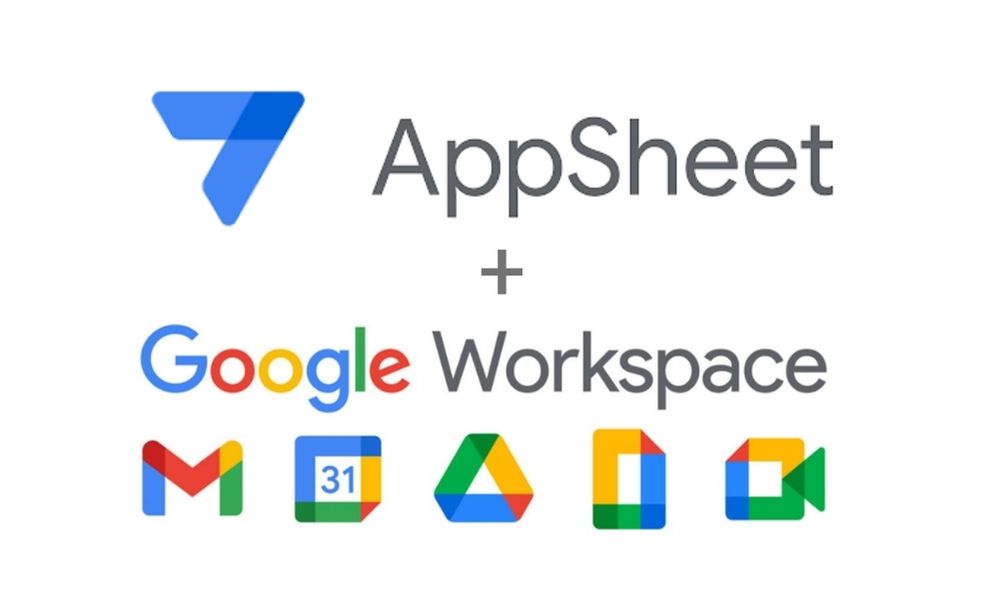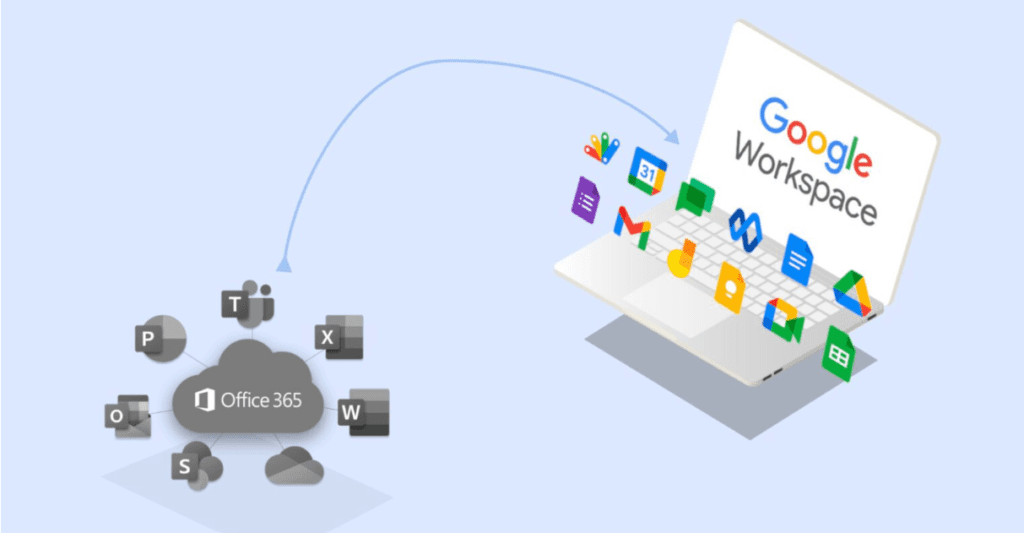With cloud computing gradually becoming the new norm, businesses are turning to different platforms. Google Cloud, a comprehensive cloud computing platform offered by Google is one of them. Scalability, flexibility, and efficiency are some of the reasons why cloud computing is being considered massively these days.
Table of Contents
ToggleThe Google Cloud services and solutions available to businesses seem endless. Whether you’re looking for storage, compute power, machine learning capabilities, or data analytics, Google Cloud has you covered. This article will be answering your question – how to get started with google cloud? We will explore everything you need to know to get started with Google Cloud and leverage its power for your business.
What is Google Cloud?
Google Cloud is a suite of cloud computing services provided by Google. It offers a wide range of infrastructure, platforms, and software services that enable businesses to do several things. This includes building, deploying, and scaling applications and services on Google’s global infrastructure.
Google Cloud provides computing power, storage, data analytics, machine learning, and other essential cloud services. These services combine to help businesses drive innovation and accelerate digital transformation. Now that we understand what the Google Cloud platform is, the next thing is getting started with the Google Cloud platform.
Key Services and Offerings of Google Cloud
Google Cloud offers a vast array of services and solutions. Some of the key offerings include:
- Compute Engine: A scalable and flexible infrastructure-as-a-service (IaaS) solution that allows businesses to run virtual machines (VMs) in the cloud. Compute Engine allows businesses to create and manage virtual machines (VMs) in the cloud. It also provides flexibility in choosing VM types, sizes, and configurations.
- App Engine: A fully managed platform-as-a-service (PaaS) that enables developers to build and deploy applications without worrying about infrastructure management. It supports popular programming languages and automatically scales based on demand.
- Kubernetes Engine: Kubernetes Engine is a managed environment for deploying, managing, and scaling containerized applications. It provides powerful container orchestration capabilities.
- Computing Functions: A serverless computing platform that enables businesses to run event-driven functions in response to cloud events without provisioning or managing servers. It automatically scales based on incoming requests.
- Cloud Storage: A scalable and secure object storage service that allows businesses to store and retrieve any amount of data from anywhere in the world. It provides different storage classes to optimize costs based on data access patterns.
- Cloud SQL: Cloud SQL is a fully managed relational database service that supports MySQL, PostgreSQL, and SQL Server. It simplifies database management and provides high availability and automatic backups.
- BigQuery: BigQuery is a serverless and highly scalable data warehouse that allows businesses to analyze large datasets quickly using SQL queries. It integrates with various data sources and supports real-time analysis.
- Cloud Pub/Sub: Cloud Pub/Sub is a messaging service that enables businesses to build event-driven architectures and decoupled systems. It ensures reliable and asynchronous communication between independent applications.
- AI and Machine Learning Services: Google Cloud offers a range of AI and machine learning services, such as Vision AI, Natural Language API, Translation API, and AutoML. These services enable businesses to leverage machine learning capabilities without extensive expertise.
Benefits of Google Cloud for Businesses
An understanding of Google Cloud always leads to one question for many. What is the Google Cloud platform used for? The simple answer to this question is a lot. The Google Cloud Platform (GCP) has so many benefits and uses, some of which include;
- Scalability and Flexibility: Google Cloud provides businesses with the ability to scale resources up or down based on demand, ensuring optimal performance and cost efficiency.
- Global Infrastructure: With data centres located across the globe, Google Cloud offers businesses the advantage of low-latency access to services and the ability to reach a global audience.
- Advanced Data Analytics: Google Cloud’s data analytics tools, such as BigQuery, enable businesses to analyze large datasets and derive valuable insights to drive informed decision-making.
- Security and Compliance: Google Cloud adheres to rigorous security and compliance standards, ensuring the confidentiality, integrity, and availability of data.
- Collaboration and Productivity: Google Cloud’s collaboration tools, such as Google Docs, Sheets, and Slides, facilitate real-time collaboration and improve productivity among team members.
Getting Started with Google Cloud
There are some Google Cloud fundamentals you would need to take care of when you start. Some of them include;
- To get started with Google Cloud, visit the Google Cloud website and sign up for an account. You will need to provide your business details and create a Google Cloud project.
- Set up billing and payment information to access the full range of Google Cloud services. Google Cloud offers various pricing options, including pay-as-you-go and committed use discounts.
- Projects in Google Cloud act as containers for your resources. Create a project and organize your resources within it for better management and access control.
- The Google Cloud Console provides a web-based interface to manage and access your Google Cloud resources. Use the console to create and configure services, monitor usage, and manage billing.
Google Cloud Networking and Security
To get started on google cloud, you need to familiarize yourself with their networking and security. This is because it might be slightly different to what you are used to. The best user experience has always been the main focus at Google. So here are some of the things you should know as it concerns networking and security;
- Virtual Private Cloud (VPC): VPC provides a virtual network environment for your Google Cloud resources. It allows you to define and control network settings, including IP ranges, subnets, and firewalls.
- Cloud Identity and Access Management (IAM): IAM provides centralized access control and permissions management for your Google Cloud resources. It allows you to manage user access and define fine-grained permissions.
- Cloud Firewall: Cloud Firewall offers network-level protection and allows you to create rules to control inbound and outbound traffic to your resources.
- Cloud Load Balancing: Cloud Load Balancing distributes incoming traffic across multiple instances or services, ensuring high availability and scalability.
- Cloud CDN: Cloud CDN delivers content from edge locations, reducing latency and improving performance for users across the globe.
Google Cloud Pricing and Cost Management
Google Cloud pricing is flexible as they were tailored to meet the needs of businesses on different levels. Whether you want Google Cloud Storage or Google Cloud hosting, it is important to understand the pricing system. This will help your decision-making process Some key aspects of pricing and cost management in Google Cloud include:
- Pay-as-you-go Pricing: With pay-as-you-go pricing, you pay only for the resources you use. This provides cost flexibility and eliminates the need for upfront investment.
- Committed Use Discounts: Google Cloud offers discounts for committing to use resources for a specific duration, providing cost savings for long-term usage.
- Cost Calculator: Google Cloud provides a cost calculator that allows businesses to estimate costs based on resource usage.
- Budgets and Alerts: Set up budgets and receive alerts to monitor and control your Google Cloud spending.
Getting Started with Cloud Engineering
Cloud engineering involves designing, developing, deploying, and managing applications and services in the cloud. The good thing about the cloud is the fact that it is for everyone. Google understands this and makes sure every user is satisfied. For engineers that are new to cloud computing, there are Google Cloud platform tutorials available everywhere. You can also earn Google Cloud certification to improve your reputation. For a cloud architect or engineer, here are some key aspects to consider:
- Cloud Architecture Design: Design your cloud architecture to ensure scalability, high availability, security, and cost optimization.
- Deployment and Scaling: Use automation and orchestration tools to streamline deployment processes and enable seamless scaling based on demand.
- Monitoring and Optimization: Implement monitoring and observability tools to track performance, detect issues, and optimize resource utilization.
- Security and Compliance: Follow best practices to secure your cloud infrastructure, including access controls, encryption, and regular audits. Comply with industry and regulatory standards.
Google Cloud Customer Success Stories
You are not the first person and you wouldn’t be the last to adopt the Google cloud console. Google Cloud has been adopted by numerous businesses across various industries. Some notable success stories include:
- Spotify: Spotify uses Google Cloud for scalable storage and data analytics to deliver personalized music recommendations to millions of users worldwide.
- Snap Inc.: Snap Inc., the parent company of Snapchat, leverages Google Cloud for storage, compute power, and machine learning capabilities to support its multimedia messaging platform.
- Colgate-Palmolive: Colgate-Palmolive uses Google Cloud for data analytics and machine learning to gain valuable insights and improve business operations.
Conclusion
The set of cloud computing services provided by Google Cloud is seen as the most comprehensive out there. They have combined to help businesses from different spheres drive innovation, scalability, and efficiency. By leveraging Google Cloud functions, businesses can store and process data, build and deploy applications, etc.
Whether you’re just getting started or looking to increase your cloud infrastructure, there are several services/resources available. The advice would always be to embrace the power of Google Cloud and unlock new possibilities for your organization. However, working with a Google Cloud partner like Codematic will help you unlock the full potential of Google Cloud services. So, do well to click this link, and let’s get started with transforming your business.




